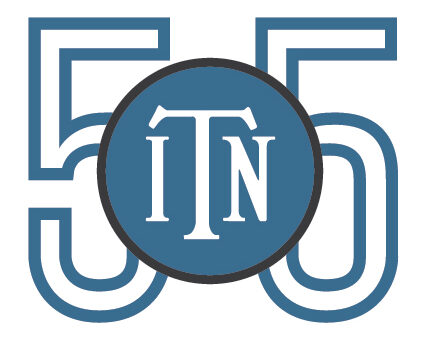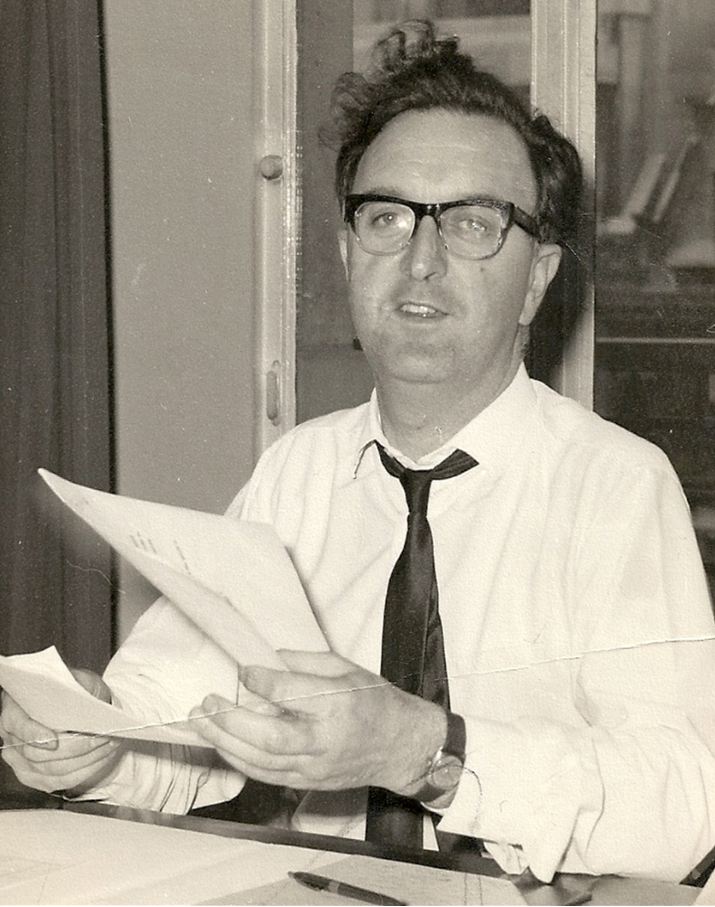By Stewart Purvis
David Nicholas loved everything about news. He enjoyed finding it which is why during the Cold War he often listened overnight to Moscow Radio in English hoping to hear first about the demise of yet another Soviet leader or a space success. He delighted in sharing it which is why he rang some of us in the middle of the night to tell us what he’d just heard.
David never lost his life-long enthusiasm for discovery, he read at least five newspapers a day, his final email to me was about a NASA Voyager journey to a distant star last year.
Tregaron
His curiosity about the wider world may first have been aroused while growing up in Tregaron, a market town in mid-Wales where in the 1930s there were more horses and carts than cars. His school lessons were in Welsh, the first language of his grandparents. A family move south took him to English-speaking Neath Grammar School and onwards to Aberystwyth University where his friends thought he was a ‘bit odd’ for wanting to be a journalist.
During his National Service he was promoted to Sergeant Nicholas, he considered the army as a career. That military background would prove useful to him during the Northern Ireland troubles and the Falklands War when he tried to find a balance between the freedom of the media and the needs of military security and public safety.
The army’s loss of a potential young recruit was to be journalism’s gain. But only just, a job on the Wakefield Express covering rugby league was the only one on offer despite hundreds of his applications. “When I feel depressed, I thank God I don’t still have to write eight columns a week on Wakefield Trinity”, he once said.
Then came the slightly broader horizons of the Yorkshire Post, before the big move to Fleet Street working as a sub-editor on the Daily Telegraph and Observer, then to ITN as a scriptwriter in 1960.
By 1967, when ITN persuaded the IBA and ITV to allow a 12-week trial of a half-hour news programme at ten o’clock, David had earned enough trust from the editor Geoffrey Cox to be put in charge. News at Ten became a national institution. David called it ‘popular photo-journalism’ blending vivid picture power, human angles, exclusives and background analysis.
Ratings Winner
Week after week in the late 1960s and early 1970s News at Ten was regularly in the list of the most watched TV programmes alongside ITV’s Coronation Street with up to fifteen million viewers. Everybody regarded it as the UK’s flagship TV news, even the BBC. Who would have thought back in 1967 that it would still be in the ITV schedule over 50 years later?
In 1968 when Geoffrey Cox left ITN David was the heir apparent, he was Deputy Editor and had created a ratings winner, but the ITV companies who owned ITN preferred Nigel Ryan. It was a shock and a setback to David but rather than leave he served nearly a decade under Nigel before finally getting the big job in 1977.
Throughout the David Nicholas decades as Editor, Chief Executive and then Chairman of ITN there were constant themes across the coverage of geo-political and social change, wars and famines, disasters and discoveries plus, of course, countless ‘And Finally’ items.
Innovation
One theme was innovation. “Every week we tried to do something that hadn’t been done before” he once told me.
Some of his ideas came from technology. As far back as the 1966 General Election an English Electric KDF 6 computer processed the results and David became determined to turn the data into TV graphics. He succeeded, with a computer first used to design knitting patterns.
David was equally determined that ITN should be at the forefront of satellite news gathering, first used all the way from Wembley and then later more famously with the Queen on the Great Wall of China in 1986.
The pulling power of live events was another Nicholas hallmark, and they didn’t come much bigger than man landing on the moon in the middle of a July night in 1969.
ITV, in the shape of Lew Grade, was persuaded by David to invest large amounts of airtime and money and David Frost was drafted in to join the familiar ITN special events team of Alastair Burnet with David Nicholas and Diana Edwards-Jones in the control room.
David always wanted these big event programmes to be ‘the best party in town’ and in the run-up to the landing his party was more popular than the BBC’s version.
This was possibly the highpoint in his relations with the ITV companies. In later years arguments about budgets, overspends, the scheduling of special events, even the issue of ITV’s ownership of ITN were to come between the two sides. David and ITV did not part on good terms but his long-term legacy is a universally respected news provider not only to ITV but to the two other commercially funded public service broadcasters, Channels Four and Five.
One development David never got enough credit for was the televising of Parliament. The experimental ‘Their Lordships House’ on Channel Four combined with relentless lobbying over many years of David’s many political contacts finally produced success.
I sat alongside him in the Commons gallery in 1988 when MPs debated the issue for the eleventh time and remember the Government front bench looking up and smiling as he finally won the day despite Margaret Thatcher’s wishes.
Rescue Mission
On a personal level David was ferociously loyal, some might even say too loyal at times.
Not so the ITN team of Michael Nicholson, Tom Phillips and Mickey Doyle trapped in Angola for four and a half months in 1978 while filming with a rebel group. David organised a rescue mission and never forgot the bravery of the pilot who landed at the rendezvous in the bush and brought out the ITN team. When the pilot later needed expensive medical treatment, David insisted that ITN paid for it.
Many ITN staff will remember an inspirational and respected leader who always made sure his people were brought home safely.
It is no exaggeration to say that he created an ITN family with high editorial standards and values.
The ITN Diaspora
David also talked of ‘the ITN diaspora’ and on his death so many people, some now in senior broadcasting roles around the world, said they were proud to be part of it. They sent condolences to David’s son James, himself a former ITN cameraman, and James’s partner Amanda who helped him care for David for so many years near their home in Cheshire. Condolences too to David’s daughter Helen and her family in America.
The oldest amongst us also remember with great affection the love of David’s life, Juliet Davies as she was when they first met as 8-year-olds at a birthday party, Lady Nicholas as she proudly became, the matriarch of both families, the ITN one and the Nicholas one. Both families loved the man we now mourn, the boss who changed so many of our lives and always for the better

